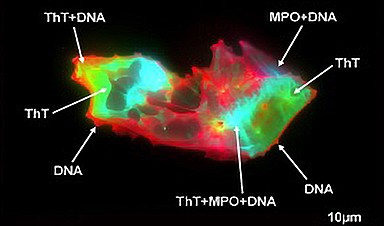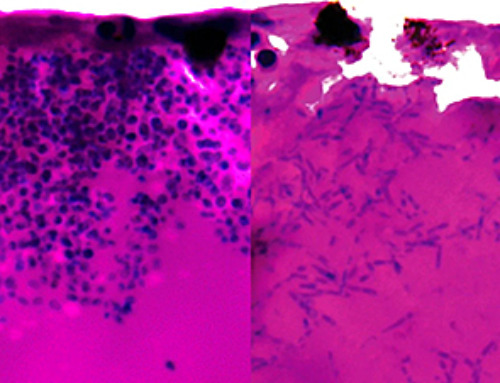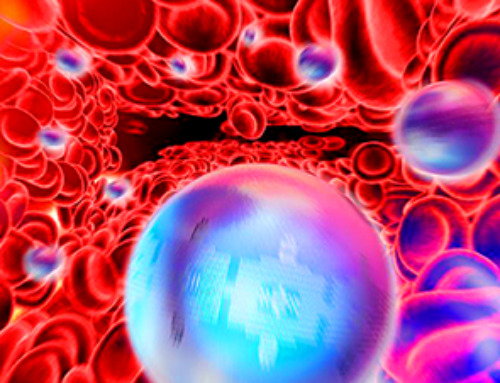In a recent study published in Nature, scientists used murine models to investigate how certain bacteria, such as Escherichia coli strains that contain a polyketide synthase (pks) island encoding enzymes that produce colibactin genotoxin, could increase the risk of colorectal cancer.
The study examined whether blocking the binding mechanisms of the toxin could prevent colorectal cancer.
Background
Colorectal cancer affects more than two million individuals worldwide every year and is one of the leading causes of cancer-associated mortality. Studies show that the disease is linked to Western lifestyles consisting of inadequate physical activity and unhealthy diets, and the incidence of colorectal cancer is rising, especially among people below 50 years of age. There is strong evidence supporting the role of the gut microbiome dysbiosis and some specific bacteria in promoting colorectal cancer.
Pathogenic strains of E. coli and Fusobacterium nucleatum have been identified as risk factors for colorectal cancer. Some strains of E. coli are known to carry genes that enable the production of colibactin. This toxin causes deoxyribonucleic acid (DNA) damage and has been found to be linked to both inflammatory bowel disease and colorectal cancer. This also suggests that bacteria-induced inflammation could potentially worsen the progression of colorectal cancer.
About the study
In the present study, researchers investigated the binding mechanisms through which the colibactin toxin produced by pks+ E. coli 11G5 strain causes the double-stranded breaks in DNA and cell cycle arrest to understand further how these pathogenic bacterial strains contribute to the development of colorectal cancer.
Studies from human intestinal organoids have reported that colibactin directly binds to the DNA, causing mutations that are often detected in colorectal cancer patients. However, the processes that allow the pks+ E. coli direct contact with the intestinal cells and the mechanisms through which colibactin reaches the host cell DNA remain unclear.
To investigate how pks+ E. coli might contribute to colorectal cancer, the researchers conducted a series of experiments using murine models and cultured cells. They used a mouse model with an impaired gut barrier to study the interactions between pks+ E. coli stains and the gut lining. The mice were orally exposed to the pks+ E. coli strain to observe bacterial infection-linked tumor development.
Histopathological methods and immunostaining were performed on tissue samples after four weeks to evaluate tumor burden, quantify E. coli presence, and assess the invasion levels in the colon. The size of the bacterial colonies and the localization in the gut epithelium were examined using scanning electron microscopy.
The inflammation levels were determined by analyzing the inflammatory markers such as C-X-C motif chemokine ligand 1 (CXCL1) and interleukins (IL) 17A and 1β. Additionally, transcriptomic analysis was performed to examine the expression of tumor-related genes in the epithelial and immune cells of the colon.
Furthermore, the researchers used mutant pks+ E. coli 11G5 strains that were lacking colibactin, or one of the two bacterial fimbrial adhesin genes FimH or FimlH, and compared it to the wild-type 11G5 strain to assess their ability to bind to epithelial cells and cause DNA damage. The study also used human colon cell cultures to measure DNA damage through in vitro damage assays involving immunofluorescence and flow cytometry.
Results
The study found that infection with the pks+ E. coli 11G5 strain promoted the progression of colorectal cancer in mice that had weakened intestinal barriers. The mice infected with the pks+ E. coli 11G5 strain developed more severe tumor-related indicators, such as higher tumor invasiveness and increased colon weight, than the control mice, which did not have an impaired gut barrier.
Furthermore, in comparison to the control strain of E. coli, which remained in the gut lumen, the pks+ E. coli 11G5 strain was able to strongly adhere to the epithelial cells and invade the gut lining, forming large bacterial colonies that were directly associated with the epithelial cells of the colon. This suggested that the pks+ E. coli 11G5 strain promoted colorectal cancer progression by infiltrating the colonic tissue.
The infected mice also showed higher levels of pro-inflammatory cytokines such as IL-17A, IL1β, and CXCL1. The transcriptomic analysis also revealed the activation of pathways that promoted tumor development, such as epithelial-to-mesenchymal transition pathways.
However, only the mice that were infected with the colibactin-producing strains of E. coli 11G5 were able to cause increased DNA damage. Additionally, the bacterial fimbrial adhesin genes were found to be critical for the tumor-promoting effects of pks+ E. coli 11G5 since the mutant strains lacking the adhesin genes failed to attach closely to the epithelial cells. The mice infected with the FimH and FimlH mutant strains experienced reduced tumor growth, lower epithelial invasion, and less DNA damage.
Conclusions
To conclude, the study reported that the progression of colorectal cancer linked to infection with pks+ E. coli required the strong adhesion of the bacteria to the colonic epithelial cells and the induction of DNA damage by colibactin. Targeting bacterial adhesins such as FimH and FimlH could provide potential therapeutic strategies to slow the bacterial-driven progression of colorectal cancer.
- Jans, M., Kolata, M., Blancke, G., D’Hondt, A., Gräf, C., Clers, M., Sze, M.,… et al. 2024. Colibactin-driven colon cancer requires adhesin-mediated epithelial binding. Nature. doi:10.1038/s41586-024-08135-z https://www.nature.com/articles/s41586-024-08135-z
News
We May Never Know if AI Is Conscious, Says Cambridge Philosopher
As claims about conscious AI grow louder, a Cambridge philosopher argues that we lack the evidence to know whether machines can truly be conscious, let alone morally significant. A philosopher at the University of [...]
AI Helped Scientists Stop a Virus With One Tiny Change
Using AI, researchers identified one tiny molecular interaction that viruses need to infect cells. Disrupting it stopped the virus before infection could begin. Washington State University scientists have uncovered a method to interfere with a key [...]
Deadly Hospital Fungus May Finally Have a Weakness
A deadly, drug-resistant hospital fungus may finally have a weakness—and scientists think they’ve found it. Researchers have identified a genetic process that could open the door to new treatments for a dangerous fungal infection [...]
Fever-Proof Bird Flu Variant Could Fuel the Next Pandemic
Bird flu viruses present a significant risk to humans because they can continue replicating at temperatures higher than a typical fever. Fever is one of the body’s main tools for slowing or stopping viral [...]
What could the future of nanoscience look like?
Society has a lot to thank for nanoscience. From improved health monitoring to reducing the size of electronics, scientists’ ability to delve deeper and better understand chemistry at the nanoscale has opened up numerous [...]
Scientists Melt Cancer’s Hidden “Power Hubs” and Stop Tumor Growth
Researchers discovered that in a rare kidney cancer, RNA builds droplet-like hubs that act as growth control centers inside tumor cells. By engineering a molecular switch to dissolve these hubs, they were able to halt cancer [...]
Platelet-inspired nanoparticles could improve treatment of inflammatory diseases
Scientists have developed platelet-inspired nanoparticles that deliver anti-inflammatory drugs directly to brain-computer interface implants, doubling their effectiveness. Scientists have found a way to improve the performance of brain-computer interface (BCI) electrodes by delivering anti-inflammatory drugs directly [...]
After 150 years, a new chapter in cancer therapy is finally beginning
For decades, researchers have been looking for ways to destroy cancer cells in a targeted manner without further weakening the body. But for many patients whose immune system is severely impaired by chemotherapy or radiation, [...]
Older chemical libraries show promise for fighting resistant strains of COVID-19 virus
SARS‑CoV‑2, the virus that causes COVID-19, continues to mutate, with some newer strains becoming less responsive to current antiviral treatments like Paxlovid. Now, University of California San Diego scientists and an international team of [...]
Lower doses of immunotherapy for skin cancer give better results, study suggests
According to a new study, lower doses of approved immunotherapy for malignant melanoma can give better results against tumors, while reducing side effects. This is reported by researchers at Karolinska Institutet in the Journal of the National [...]
Researchers highlight five pathways through which microplastics can harm the brain
Microplastics could be fueling neurodegenerative diseases like Alzheimer's and Parkinson's, with a new study highlighting five ways microplastics can trigger inflammation and damage in the brain. More than 57 million people live with dementia, [...]
Tiny Metal Nanodots Obliterate Cancer Cells While Largely Sparing Healthy Tissue
Scientists have developed tiny metal-oxide particles that push cancer cells past their stress limits while sparing healthy tissue. An international team led by RMIT University has developed tiny particles called nanodots, crafted from a metallic compound, [...]
Gold Nanoclusters Could Supercharge Quantum Computers
Researchers found that gold “super atoms” can behave like the atoms in top-tier quantum systems—only far easier to scale. These tiny clusters can be customized at the molecular level, offering a powerful, tunable foundation [...]
A single shot of HPV vaccine may be enough to fight cervical cancer, study finds
WASHINGTON -- A single HPV vaccination appears just as effective as two doses at preventing the viral infection that causes cervical cancer, researchers reported Wednesday. HPV, or human papillomavirus, is very common and spread [...]
New technique overcomes technological barrier in 3D brain imaging
Scientists at the Swiss Light Source SLS have succeeded in mapping a piece of brain tissue in 3D at unprecedented resolution using X-rays, non-destructively. The breakthrough overcomes a long-standing technological barrier that had limited [...]
Scientists Uncover Hidden Blood Pattern in Long COVID
Researchers found persistent microclot and NET structures in Long COVID blood that may explain long-lasting symptoms. Researchers examining Long COVID have identified a structural connection between circulating microclots and neutrophil extracellular traps (NETs). The [...]





















